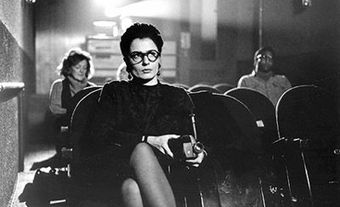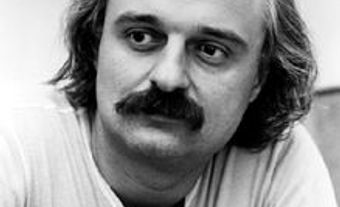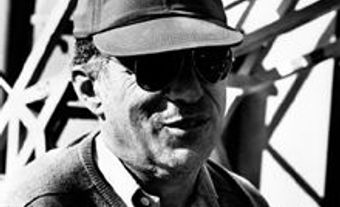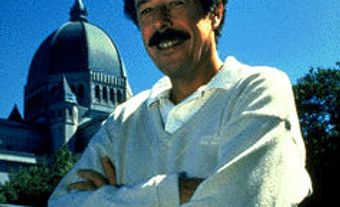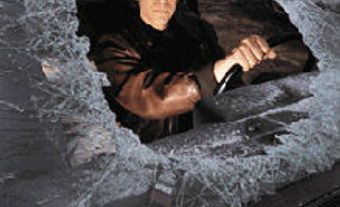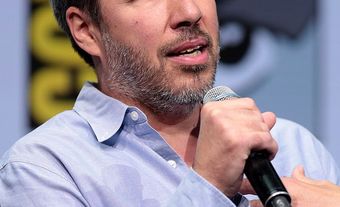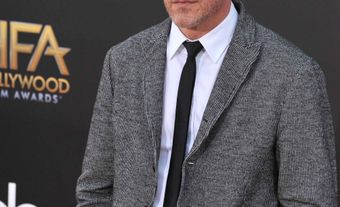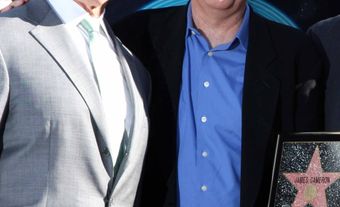Norman Frederick Jewison, CC, film director, producer, author (born 21 Jul 1926 in Toronto, ON; died 20 January 2024 in Malibu, California). One of the most acclaimed and successful filmmakers Canda has produced, Norman Jewison had an international reputation as an artist of talent and integrity. Best known for balancing popular appeal with serious social commentary, his films include the Oscar winners In the Heat of the Night (1967), Fiddler on the Roof (1971) and Moonstruck (1987), as well as The Thomas Crown Affair (1968), Jesus Christ Superstar (1973), A Soldier’s Story (1984) and The Hurricane (1999). He also had a renowned career in television in both Canada and the US and founded the Canadian Film Centre. Jewison received a star on the Hollywood Walk of Fame and Canada's Walk of Fame, as well as the Irving G. Thalberg Memorial Award from the Academy of Motion Pictures Arts and Sciences and a Governor General’s Performing Arts Award for lifetime achievement.

Early Life
Norman Jewison was born in the Beaches area of east-end Toronto. His father ran a general store, and as a child he attended Kew Beach Public School. Jewison’s first taste of showmanship came when he made his stage debut at age six. His family enrolled him in the Royal Conservatory of Music, where he studied piano and music theory. Afterward, he attended Malvern Collegiate, staging and appearing in shows and musical comedies.
From 1944 to 1945, Jewison served with the Royal Canadian Navy overseas. After the Second World War, he attended Victoria College at the University of Toronto, where he wrote and directed the first All-Varsity Revue. He spent his summer months in Alberta, where he waited tables at the Banff Springs Hotel and produced the Banff Revue.
After graduating from the University of Toronto with a liberal arts degree, Jewison went to work driving a cab. He also occasionally performed as an actor on radio for the CBC. In 1950, he travelled to England for a two-year work/study stint with the BBC. But in 1952, the newly launched CBC-TV summoned him back to Toronto and offered him a job as a training assistant director.
Television Career
During the next seven years, Norman Jewison wrote, directed and produced some of Canada’s most popular and successful musicals, comedy/variety shows and specials, including The Big Revue (1952–53; the first regular series for the fledgling network), Denny Vaughan (1954–57), The Barris Beat (1956–57) and Wayne & Shuster.
In 1958, at the invitation of CBS, he moved to New York to update the weekly television musical Your Hit Parade. This led to steady work on The Andy Williams Show, and television specials featuring some of the top talent of the day: Harry Belafonte (the first for an African-American performer), Danny Kaye, Pat Boone, Jackie Gleason and most famously Judy Garland. During this period, Jewison was acknowledged as the top director of musical variety working in American television. His Judy Garland Special — shot in Los Angeles in early 1961 with guests that included Frank Sinatra and Dean Martin — remains a classic of the period and received four Emmy Award nominations.

Movie Career
In 1963, Norman Jewison was offered a three-picture deal with Universal Studios. He was assigned two light comedies starring Doris Day, The Thrill of It All (1963) and Send Me No Flowers (1964). The third film was The Art of Love (1965), starring James Garner and Dick Van Dyke. Then Jewison got his first big break in the movies. The notoriously difficult director Sam Peckinpah was fired from a relatively low-budget poker drama for MGM, The Cincinnati Kid (1965), and Jewison was brought in to direct. He had a hand in rewriting the script, and the film, starring Steve McQueen and Edward G. Robinson, became a minor commercial hit with extremely good reviews. Jewison’s Hollywood career was launched.
After that, Jewison mostly maintained complete artistic control of all the films he directed, and also functioned as a producer and sometimes screenwriter. His first film as director/producer was the Cold War comedy The Russians Are Coming, the Russians Are Coming (1966), starring Carl Reiner and Alan Arkin. It received four Oscar nominations, including best picture. Then came the film that Norman Jewison will always be remembered for — the intense racial drama In the Heat of the Night (1967, which he directed only), starring Sidney Poitier and Rod Steiger.
Jewison — who marched in the civil rights protests of the 1960s beside his friends Robert Kennedy, then the US Attorney General, and Martin Luther King Jr. — was appalled in his youth when he witnessed the plight of African Americans in the Deep South. In many ways, Jewison — a liberal, middle-class Canadian — was the perfect choice to direct the most racially charged movie of the 1960s. The shock of a black character (Poitier) striking a wealthy white landowner stunned American audiences. The film received eight Oscar nominations, including Jewison’s first as a director. It won for best picture, actor (Seiger), screenplay, sound and editing.
Following In the Heat of the Night, Jewison was responsible for some of the biggest box-office hits of the late 1960s and early 1970s. The Thomas Crown Affair (1968), with Steve McQueen and Faye Dunaway, received two Oscar nominations; Fiddler on the Roof (1971) was the winner of three Oscars and earned Jewison his second nomination for direction and his first for best picture; and Jesus Christ Superstar (1973) was his most successful film to that point and one on which he received screenplay credit. Its quick-cutting style annoyed some critics, but others came to see it as a precursor to music videos.
After he completed work on Gaily Gaily (1969), Jewison became disillusioned with the violent turn the racial struggles in the US had taken and moved his family to London, England. Fiddler on the Roof was shot in Yugoslavia, Jesus Christ Superstar in Israel and Rollerball (1975) in Germany.
Jewison was persuaded to return to the US in 1978 to direct and produce the Sylvester Stallone union drama F.I.S.T., which was followed by the Al Pacino courtroom drama ...And Justice for All (1979). However, Jewison was still not comfortable living in Hollywood. In 1978, he purchased a farm property north of Toronto in Caledon East and moved his family there permanently. He returned to form with another racial drama. A Soldier’s Story (1984) received three Oscar nominations, including Jewison’s second for best picture. Agnes of God (1985) was shot in Ontario and received another three Oscar nominations, and the romantic comedy Moonstruck (1987), shot in Toronto and starring Cher and Nicolas Cage, was a huge box office hit. Cher won the Oscar for best actress and Jewison was nominated for both best picture and director.

Jewison’s films following Moonstruck were not as popular, but he almost never made a box-office flop, with the notable exception of the musical Gaily Gaily (1969) and his only Canadian film, The Statement (2003). His other films include Best Friends (1982), In Country (1989), Other People’s Money (1991), Only You (1994), Bogus (1996) and The Hurricane (1999), which received an Oscar nomination for Denzel Washington as the wrongly convicted American boxer Rubin “Hurricane” Carter.
Jewison also produced a number of films that he did not direct, such as The Landlord (1969), Billy Two Hats (1974), The Dogs of War (1980), Iceman (1984), January Man (1989) and Bruce McDonald’s Dance Me Outside (1994). He also produced the 1981 Academy Awards show. In 2002, he was nominated for an Emmy Award for outstanding made-for-television movie, for Dinner with Friends.
Personal Life and Other Activities
Norman Jewison was married to his wife, Margaret Ann Dixon, from 1953 until her death in 2004. They had three children together: Kevin, Michael and Jennifer.
Jewison and his wife set up the Norman and Margaret Jewison Charitable Foundation, which directs funds to AIDS research and First Nations culture. Jewison’s autobiography, This Terrible Business Has Been Good to Me, was published in 2005.
Canadian Film Centre
In 1988, Norman Jewison founded the Canadian Film Centre, a training centre located in the north end of Toronto. It offers new filmmakers courses on directing, producing and screenwriting. It has grown into an important film and television training school that has a justly deserved reputation for excellence. Notable alumni include John Greyson, Bruce McDonald, Daniel MacIvor, Don McKellar, Sarah Polley, Clement Virgo, Charles Officer, Jeff Barnaby, Midi Onodera and Ingrid Veninger.
The Academy of Canadian Cinema & Television presented Jewison with a Special Achievement Award in 1988 in recognition of his efforts in founding the centre.
Honours
Norman Jewison received many honours and awards during his career, including honorary degrees from Trent University, the University of Western Ontario and the University of Toronto. He was nominated three times by the Directors Guild of America (DGA) for best direction and three times by the Hollywood Foreign Press Association for Golden Globe Awards. Moonstruck won the Silver Bear at the 1988 Berlin Film Festival, and Jewison won the Golden Prize at the Moscow International Film Festival for A Soldier's Story.
In 1981, Jewison was appointed an officer of the Order of Canada and in 1991 he was promoted to Companion. He received a star on the Hollywood Walk of Fame and was inducted into Canada's Walk of Fame. In 1992, he received a Governor General’s Performing Arts Award for lifetime achievement. In 1999, the American Academy of Motion Pictures awarded him the Irving G. Thalberg Memorial Award in honour of the production standards he maintained throughout his career.
In 2002, he received the Directors Guild of Canada Lifetime Achievement Award, and in 2010 he became the first Canadian to be honoured by a Lifetime Achievement Award from the DGA. He received the Queen Elizabeth II Golden Jubilee Medal in 2002 and in 2004 he was made chancellor of Victoria College, his alma mater.

 Share on Facebook
Share on Facebook Share on X
Share on X Share by Email
Share by Email Share on Google Classroom
Share on Google Classroom
